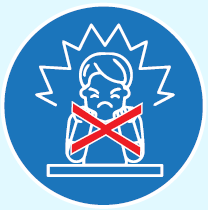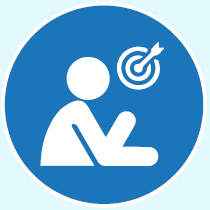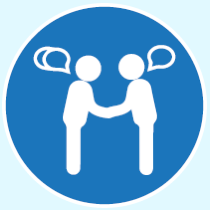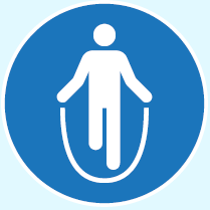HOW TO CARE FOR SOMEONE WITH CROHN’S DISEASE?
When one has Crohn’s disease (CD), it may affect his/her relatives, parents, and everyone else caring for them. Being a caregiver means helping someone manage both the physical symptoms of CD and the negative emotions that the disease can bring. The challenges one may face over a long time will be complex and diverse. Here is what one can do to help their loved one manage and overcome CD in a better manner.

Make them avoid alcohol and cigarettes

Be aware of the foods that can trigger their disease flare-up

Keep a daily food diary to recognize which foods might be problematic

Keep a check on the severity of the pain and other symptoms

Reduce stress levels with exercise, yoga, and other forms of stress relief

Help them get rid of the negative thoughts by talking with them

Keep a track of follow-ups and accompany them for doctor appointments
WHAT TO ASK THEIR DOCTOR?
It is possible to get confused about what to ask the doctor while going for an appointment. Here are some questions that one may ask a doctor, especially during the first appointment.
- What are the potential side effects of the treatment?
- How should one deal with the pain and gastrointestinal (GI) symptoms of their loved one?
- How can one help the patient cope with the changes brought about by CD?
- What are the long-term complications of CD?
- What are the warning signs that one should look for?
COMMON TERMS ONE SHOULD KNOW
Certain terms are commonly used when it comes to CD. Some of these terms include:
Abscess
A pus-filled area that appears red, swollen and can be painful, generally due to an infection. In people with CD, abscesses may form in the abdomen or the anal and rectal area
Anal fissure
A crack or torn skin around the anus, which is often painful and may cause bleeding. The lesion may become deeper and may be referred to as an 'anal ulcer'
Crohn's Colitis
Crohn's disease in the colon
CRP (C-reactive protein)
A protein in the blood that is frequently measured to check for active inflammation in the body
Gastroenterologist
A specially trained doctor in the diagnosis and treatment of intestinal disorders, including Crohn's disease
Granuloma
A small area of inflammation in the intestine of people with CD
IBD Unclassified (IBDU)
also called indeterminate colitis. One might be described as having IBDU if it is uncertain whether it is ulcerative colitis (UC) or Crohn's disease.
PROVIDING SOCIAL AND EMOTIONAL SUPPORT
Patients dealing with CD may tend to get sad, worried, and isolate themselves socially.
Taking care of a loved one with CD can be emotionally taxing for the caregiver too, and it is also important to stay on top of everything while caring for a loved one.
Here are some ways that may help:

HANDLING CHILDREN WITH CROHN’S DISEASE
Usually, CD affects adults but may occur in children, too. If one’s child is diagnosed with CD, it is natural to feel worried and concerned about the child. However, one may help their child live life to the fullest even with a condition like CD. One should care for their child’s mental and physical health. A child’s mental health could have an impact on their sleep, physical symptoms like pain and fatigue, and even on their medication schedule.
Here are some tips suggested for parents that may help:






CARING FOR SELF
Taking care of a loved one with Crohn’s can be emotionally taxing as well.
Here are some tips that may help:

Identify warning signs of stress and take action

Get rid of the guilt and anger. Make self care a priority

Set realistic goals for self

Adopt a problem-solving attitude for each and every situation

Communicate in a clear, and constructive manner to be heard and get the support that is needed

Ask for and accept a helping hand

Exercise regularly to be physically fit and mentally strong




